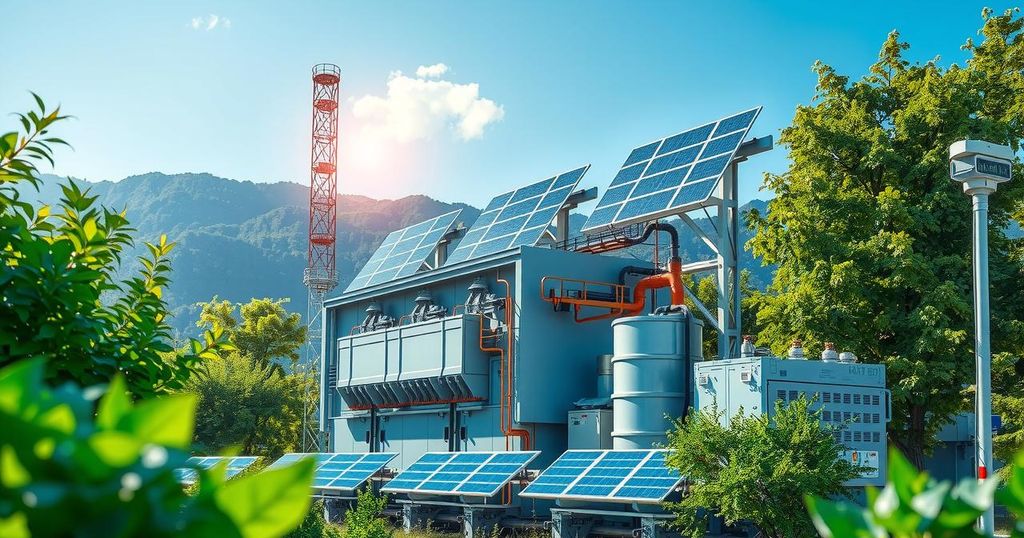America’s Energy Future: Breaking Free from China’s Influence

The article discusses America’s critical juncture in energy security, emphasizing the importance of reducing dependency on China by investing in domestic and allied battery manufacturing. It critiques current Biden administration policies that compromise national security and competitiveness, advocating for new policies to promote energy independence through technological advancements and strategic partnerships with non-CCP affiliated companies.
The United States currently faces a pivotal moment regarding its energy future, necessitating a robust supply to meet technological and energy demands. An all-encompassing strategy integrating both renewable and fossil fuels is essential as the nation strives for energy dominance, especially to support the burgeoning artificial intelligence sector. Nevertheless, the policies implemented by the Biden administration are believed to steer the country away from its sovereignty and economic competitiveness.
The administration’s stringent electric vehicle mandates have compromised the U.S. auto industry’s competitive edge by compelling manufacturers to rely on foreign supply chains, particularly with large polluting nations like China. Today, China dominates the global battery market, largely due to these misguided policies, asserting the need for the U.S. to invest in advanced battery technologies while establishing a supply chain free from the influence of the Chinese Communist Party (CCP).
Companies like CATL, the largest lithium-ion battery manufacturer globally, exemplify China’s ambitions in the electric vehicle industry. With close relations to the CCP and ties to the Chinese military, CATL poses significant national security concerns; yet, it accounts for 35% of energy storage batteries in the U.S., generating no American jobs. This reliance on Chinese manufacturers threatens U.S. interests, especially as these technologies will be vital for future energy needs.
To mitigate such risks, it is critical to examine the ownership of foreign battery manufacturers to ensure their allegiance aligns with U.S. security interests. Fortunately, alternatives exist. Korean and Japanese firms like AESC, LG, SK, Panasonic, and Samsung provide cutting-edge technologies, have made arrangements with the Committee on Foreign Investment in the U.S. (CFIUS), and manufacture batteries on American soil without links to the Chinese military.
For instance, AESC is set to invest $6 billion, aiming to create 6,000 high-paying jobs and significantly contribute to powering homes, businesses, and vehicles across America. While some U.S. companies have begun to terminate projects reliant on CATL battery technology, further government action is needed to ensure taxpayer support does not inadvertently benefit CCP-affiliated corporations.
New policies are imperative to prevent U.S. investments from being allocated to companies with strong military connections to China. Safeguarding the energy supply chain is not merely an economic issue; it is a matter of national security that requires immediate attention. By backing companies free from CCP ties, the U.S. can cultivate a secure ecosystem for battery manufacturing, cementing its leadership in innovation and national security in the energy sector.
Immediate action is essential to ensure America’s energy independence and to safeguard its national security into the future.
In conclusion, the United States’ energy future hinges on the ability to establish independence from foreign influence, particularly from China. The need for a comprehensive strategy encompassing both renewables and fossil fuels is paramount. By investing in domestic battery technologies and supporting allied nations’ manufacturers, the U.S. can protect its energy supply chain and uphold national security. Addressing the existing vulnerabilities in policy will allow for a more resilient energy infrastructure, securing its standing as a leader in global innovation.
Original Source: www.foxnews.com




